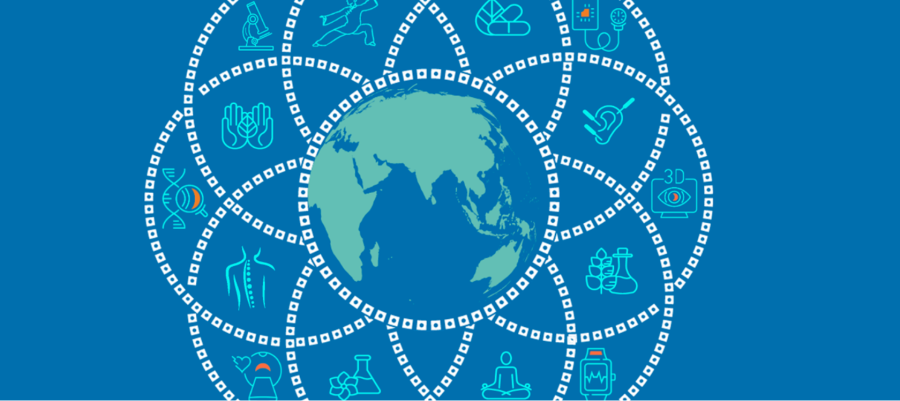
Image: WHO
The world’s first Traditional Medicine Global Summit (August 17-18, 2023), a joint endeavor by the World Health Organization (WHO) and the Indian government, has ushered in a new vision for healthcare - one that places evidence-based integration of traditional and complementary medicine at its core. WHO Director General Tedros Adhanom Ghebreyesus, in his opening address, called upon all nations to embrace this vision and explore the best ways to incorporate these age-old systems into their national health frameworks.
For centuries, traditional and complementary medicine systems have thrived on the periphery of modern medicine, often overlooked, under-studied, and underutilized. However, a global awakening is underway. Kim Sungchol, head of WHO’s Traditional, Complementary, and Integrative Medicine Unit, reveals that at least 170 countries worldwide have documented the utilization of these systems, encompassing an array of diverse traditions such as Ayurveda, Yoga, Unani, Siddha, Sowa Rigpa, Naturopathy, and many others. The richness of this heritage extends beyond borders, encompassing African, European, American aboriginal, Australian Bush, Indonesian Jamu, Malay, Maori, Persian, Tibetan, Thai, Japanese Kampo, Korean, and Traditional Chinese Medicine.
The key challenge in this transformative journey has been the quest for scientific validation, despite numerous instances of traditional and complementary medicine's efficacy. Shyama Kuruvilla, the lead for the WHO Global Traditional Medicine Centre in Gujarat, India, emphasizes that ‘nearly forty percent of today's pharmaceutical products trace their origins back to the natural world. Aspirin, for instance, can be traced to willow bark, a pain reliever employed for millennia. Nobel laureate Youtou Tu's isolation of artemisinin from sweet wormwood, a traditional Chinese medicine, revolutionized malaria treatment. The effectiveness of practices like yoga and acupuncture has been corroborated through clinical trials.’
Nevertheless, conducting clinical trials for traditional medicine presents unique challenges. First, existing biomedical models of standardization do not easily fit these systems due to their holistic nature. According to LSHTM’s Dr. Mahesh Mathpati, an Ayurvedic physician, and Professor (Emeritus) John Porter, Ayurveda, for example, regards each individual as a unique entity shaped by an array of variables, including geography, climate, genetics, and diet. Thus, treatments are tailored to each patient's distinctive attributes, blurring the lines of standardization. Second, the intricate combination of bioactive compounds found in whole-plant therapies pose difficulties in isolating precise active ingredients. This necessitates innovative tools and methods from the social sciences and life sciences to assemble evidence supporting traditional and complementary medicine.
Amidst these complexities, ethno-pharmacology may offer potential solutions. This interdisciplinary field offers insights into sample preparation and the characterization of plant-derived substances, which can serve as alternatives or complements to conventional antimicrobial agents. Ethno-veterinary practices have also demonstrated their potential in reducing antibiotic use, particularly in addressing bovine mastitis. Aurveda has specialised branches for animals (Pashu Aurveda) and plants (Vriksha Ayurveda) which need to be explored and harnessed. Traditional and complementary medicine systems, can therefore, offer additional weaponry in the battle against contemporary global health challenges, such as antimicrobial resistance and emerging infectious diseases.
Integrating the best of these systems into existing healthcare frameworks, for both humans and animals, promises a more inclusive and culturally sensitive approach to healthcare. It acknowledges the vast bank of knowledge cultivated by diverse cultures over millennia, offering a pathway to a more comprehensive, effective, and patient-centric global One Healthcare ecosystem.
If you enjoyed this article and would like to build a career in global health, we offer a range of MSc programmes covering health and data, infectious and tropical diseases, population health, and public health and policy.
Available on campus or online, including flexible study that works around your work and home life, be part of a global community at the UK's no.1 public health university.
